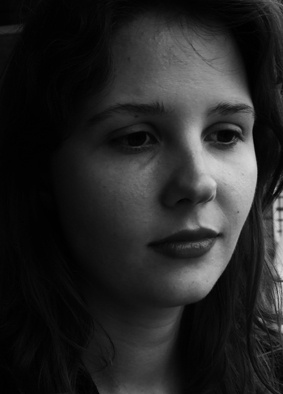 | Born in 1978 in Fecamp () Lives and works in Paris (France ) | Biographie |
 | Born in 1978 in Fecamp () Lives and works in Paris (France ) | Biographie |
Born in 1978 in Fécamp, Justine Triet entered the Beaux-Arts de Paris at the age of 20, and spent the better part of her years of study in the studio of German photographer Barbara Leisgen. During her studies, she co-wrote the script of the feature film Faites vos jeux with Thomas Levy-Lasne, and began making films. After obtaining her diploma in 2003 with highest honours, she regularly participated in exhibitions and film festivals. In 2004, Trasverse, a short film designed as a strange investigation into shady politicians, was selected for the Rencontres Internationales Paris/Berlin, held in Paris. In 2006, the video L’amour est un chien de l’enfer (2004) was screened at the collective exhibition Rendez-vous (2005) for the Biennale d’Art Contemporain in Lyon. This film pursued questions previously raised regarding political life and the manipulation of people in social contexts, focusing on the "choreography" of political rallies.
In March 2006, in Paris, student protests against a measure introduced by the Prime Minister [1] provided an occasion for her to establish a unique point of view for recording the phenomenon of a public gathering. The confrontation between CRS factions, photographers and cameramen sporting helmets, students and groups of young people who had come to participate in the gathering were filmed by cameras positioned all around the Place d’Italie in Paris. These images resemble ones we’ve seen before, since they deploy a televisual vocabulary. Here, however, they present a more personal and above all less Manichean view of a social event. In bypassing the reporters’ logic, Justine Triet reveals a ‘ballet of bodies’, at a careful pace. The context is forgotten in favour of portraits and intense gestures, in which the impetus of the group amplifies each movement.
In 2007, the film Solférino provided another occasion to film a mass phenomenon, on the scale of a political event. Pursuing her interest in moments of tension, Justine Triet filmed the assembly at the headquarters of the Socialist Party in Paris on the night of the results of the presidential elections. With the aid of seven cameras, she not only filmed the participants, but also the climate, providing her with the chance to see and understand the complexity of an event. She also filmed the reporters, those who record the images and "produce realities". There are moments when the crowd seems to react when it is aware of being filmed and responds with forced expressions.
Des ombres dans la maison (2010) marks a turning point in her work. In this film, shot in Sao Paulo, she maintains a more intimate relationship with her characters. Having left for Brazil, Justine Triet became fascinated by religious events and pastors. She met Valeria, a female pastor who she decides to film. Besides her religious tasks, Valeria is also a social worker and among others, she takes care of a young boy of 15, Gustavo, whose mother is an alcoholic. This feature film paints a moving portrait of its characters’ painful destinies. It once again shows the artist’s interest in crowd phenomena, with the preachers, but a new sense of intimacy emerges with her characters, which she also films back in their home environments, providing a chance to paint some unsettling portraits. She obtained the Grand Jury prize in the short film section of the Festival Premiers Plans of Angers for Vilaine fille, mauvais garçon.
Patricia Maincent
Translated by Anna Knight
[1] These were the student protests against the CPE or Contrat Première Embauche (School Leavers’ Contracts), a type of long-term employment contract for under 26-year olds, provided by article 8 of the Law for Equal Opportunities.